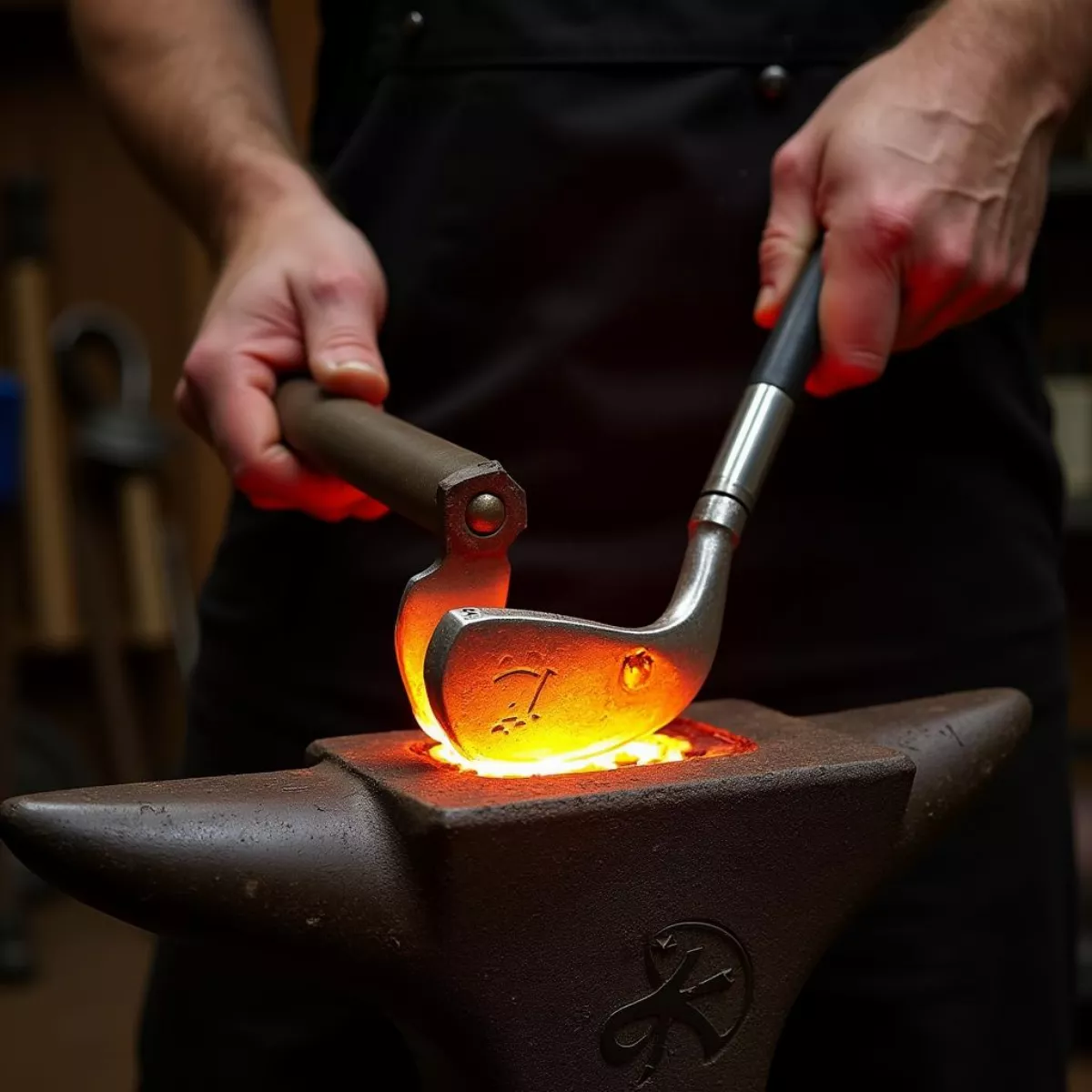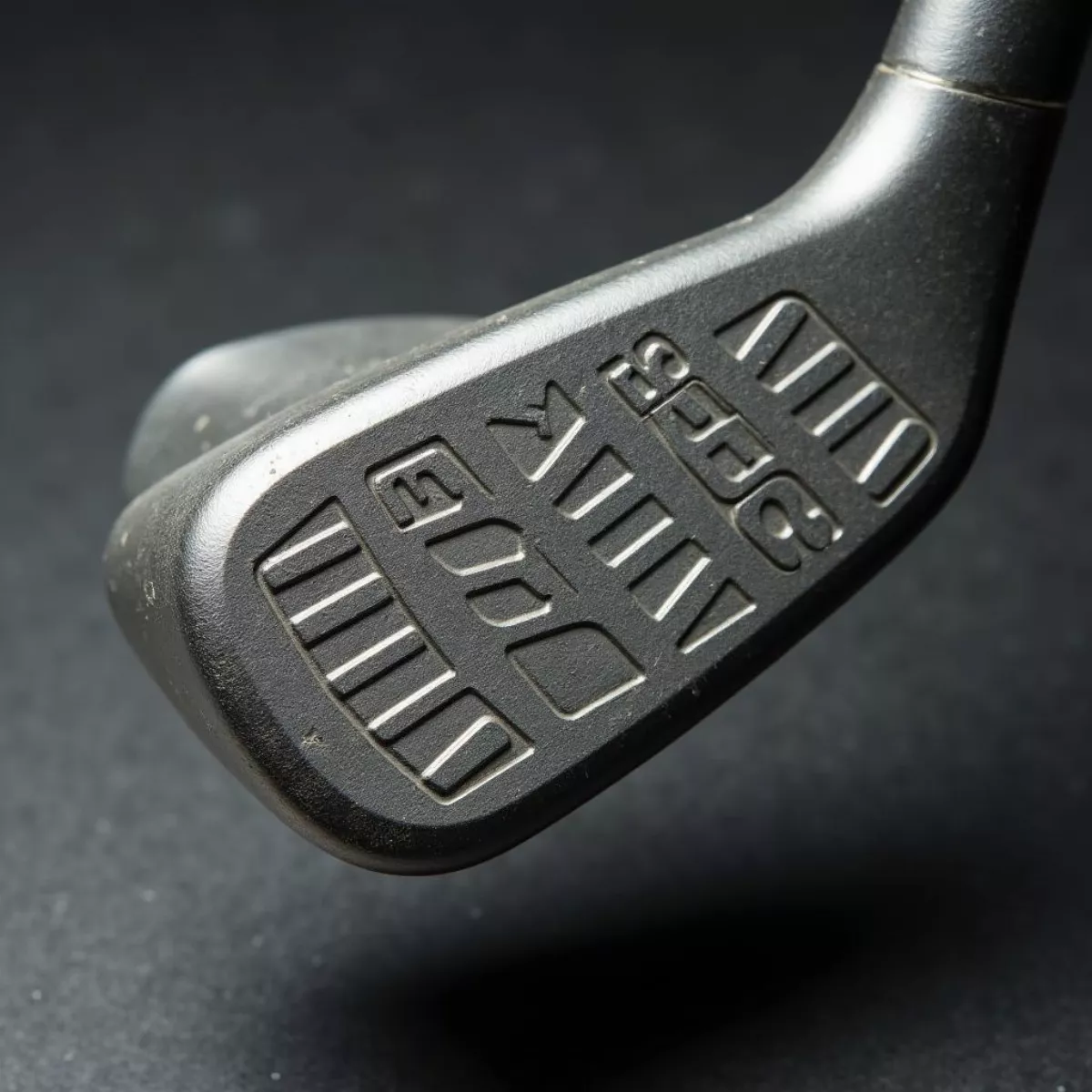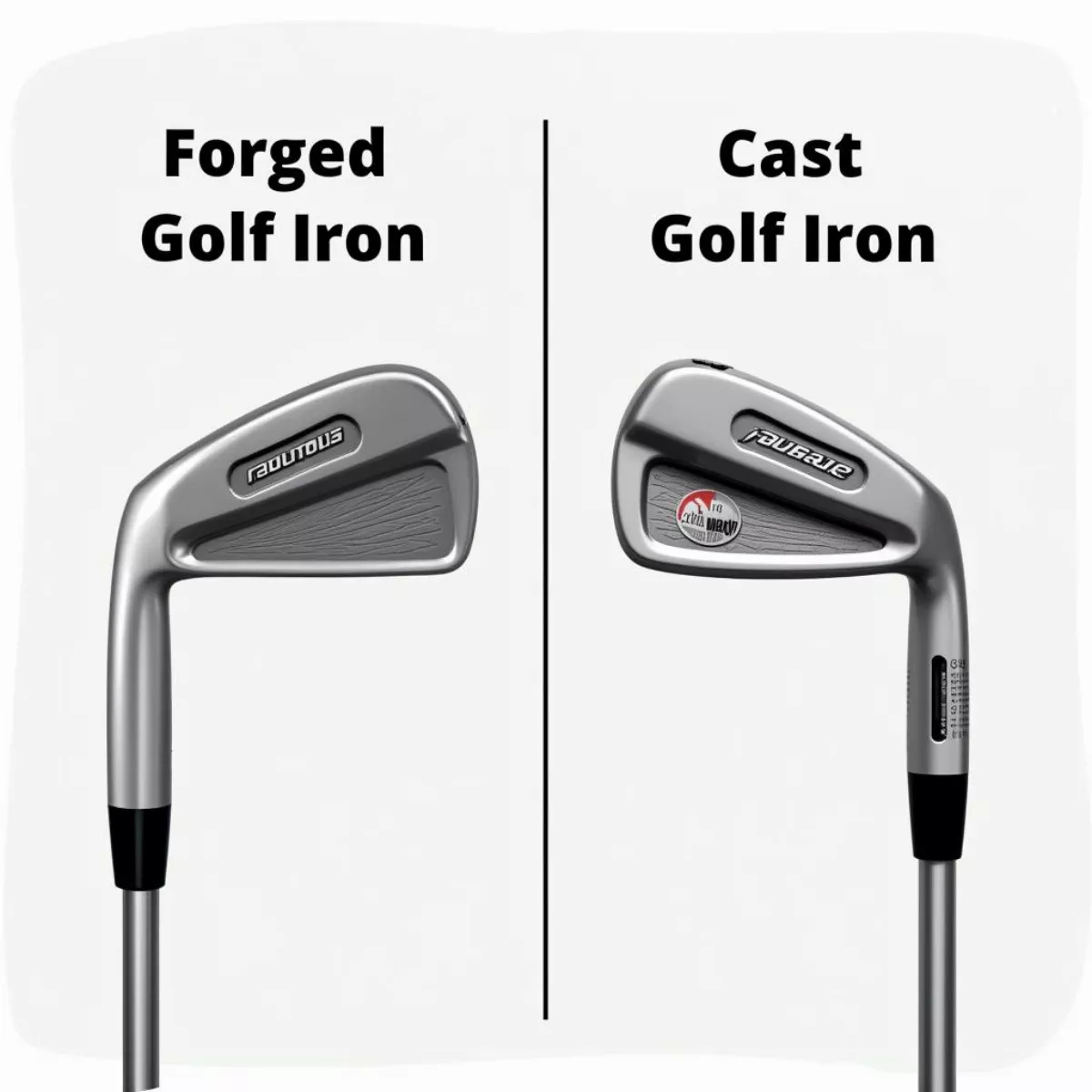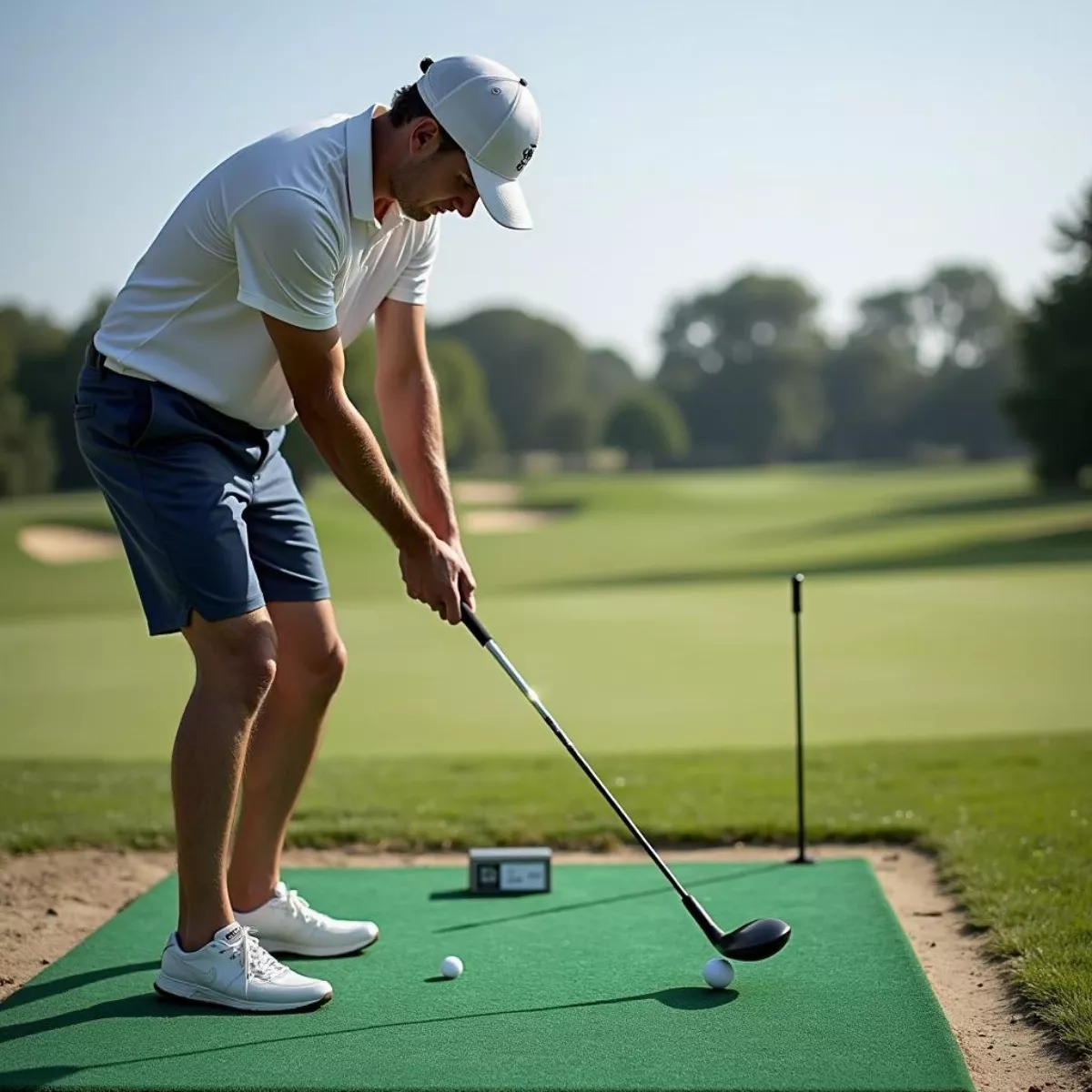comparison forged golf irons vs cast golf irons

Are you a golfer trying to determine whether forged golf irons or cast golf irons are the right fit for your game? Understanding the differences between these two types of clubs can be a game-changer in fine-tuning your performance on the course. In this comprehensive guide, we will dive deep into the world of golf irons, breaking down their characteristics, benefits, and weaknesses while keeping it friendly and informative.
What Are Forged Golf Irons?
Forged golf irons are made from a single piece of metal, typically soft carbon steel, which is heated and transformed into the desired shape using a hammering process. This method results in a clean, consistent grain structure within the metal, which many players believe enhances feel and control.
Key Characteristics of Forged Irons:
- Material: Made of soft carbon steel.
- Feel: Offers superior feedback upon striking the ball.
- Workability: Easier to shape and control for skilled players.
- Spin Control: Known for excellent spin performance.
“The feel of a forged iron is simply unmatched. You can really feel the difference when you make contact.” – Avid Golfer

What Are Cast Golf Irons?
Cast golf irons, on the other hand, are produced by pouring molten metal into a mold, which shapes the clubhead. This process allows for a variety of designs and styles, accommodating a wider range of performance features than forged irons might offer.
Key Characteristics of Cast Irons:
- Material: Typically made from stainless steel.
- Durability: Generally considered more durable due to the manufacturing process.
- Game Improvement: Often designed to increase forgiveness and enhance playability.
- Cost-Effective: Usually more affordable than forged options.
“Cast irons are great for beginners; they help keep the ball in play, even when your swing isn’t perfect.” – Gear Reviewer

Forged vs. Cast: A Comparative Look
Let’s compare forged and cast golf irons side by side. Below is a detailed table that outlines the distinctions in various categories:
| Feature | Forged Golf Irons | Cast Golf Irons |
|---|---|---|
| Manufacturing | Hammered from a single piece | Molding molten metal |
| Material | Carbon steel | Stainless steel |
| Feel | Superior, more feedback | Generally less feel |
| Forgiveness | Less forgiving | More forgiving |
| Spin Control | Exceptional | Varies by model |
| Price | Generally higher | More budget-friendly |
| Customization | Limited customization | Variety of custom options |
| Durability | Less durable, can dent | Highly durable |
| Ideal For | Skilled players | Beginners to intermediate |

Pros and Cons of Forged Golf Irons
Pros:
- Enhanced feel and feedback – Essential for players who want precise control.
- Better workability – Allows for a more creative shot-making process.
- Preferred by better players – The lower center of gravity helps with shot shaping.
Cons:
- Higher price point – Can be more expensive than cast options.
- Less forgiveness – More challenging for beginners.
- Durability – Prone to scratches and dings.
Pros and Cons of Cast Golf Irons
Pros:
- Forgiveness – Ideal for improving players who may still struggle with consistency.
- Affordability – Generally more accessible in terms of price.
- Variety – A wide range of designs available to suit different playing styles.
Cons:
- Less feel – May lack the precision sought by lower handicappers.
- Limited workability – Harder to shape shots as desired.
- Variability in spin control – Depending on the specific model, performance may vary.
Choosing the Right Iron for Your Game
Consider Your Skill Level:
- Beginners: Typically benefit from the forgiveness of cast irons. They provide a larger margin for error, which can make learning easier.
- Intermediate to Advanced Players: More likely to prefer forged irons for their workability and feel, critical for shot shaping.

Consider Your Playing Style:
- If you rely on touch and feel, forged golf irons might be the way to go.
- If you prioritize ease of use and consistency, cast golf irons are likely a better fit.
Do You Want Customization?
- If you’re looking to refine your set to match your swing mechanics, you might find forged grills more suited to customization than cast models, which often have more preset characteristics.
Key Takeaways
- Forged golf irons offer a superior feel and are suitable for skilled players who value precision and workability.
- Cast golf irons provide increased forgiveness and affordability, making them ideal for beginners and intermediate players.
- The right choice ultimately depends on your skill level, playing style, and personal preferences.
FAQs About Forged vs. Cast Golf Irons
1. Are forged irons better than cast irons?
Not necessarily. Forged irons provide better feedback and control, while cast irons are more forgiving and affordable. It depends on your skill level and playing style.
2. Do forged irons require more skill to use?
Yes, forged irons are typically less forgiving, which means they need a more consistent swing to realize their potential.
3. What are the main materials used in forged and cast irons?
Forged irons are mostly made from soft carbon steel, while cast irons are often made from stainless steel.
4. Can you still use cast irons as you improve?
Absolutely! Many players transition from cast to forged as they develop their skills, but good cast irons can remain useful even at higher skill levels.
5. Are forged irons worth the extra cost?
If you value feel and customization, they can be worth the investment. Otherwise, cast irons might serve you just fine.
6. Should I try both types of irons before buying?
Yes, testing both types can give you a better sense of what feels right for your swing and playing style.
7. How long do cast irons last compared to forged?
Cast irons typically last longer and resist damage better than forged irons, which can dent more easily.
8. Do professional golfers prefer forged or cast irons?
Most professional golfers prefer forged irons due to their superior feel and ability to control shots.
9. Can I reshaft my irons regardless of whether they are forged or cast?
Yes, both forged and cast irons can be reshafted to better match your swing mechanics.
10. What’s the best practice for maintaining my irons?
Regular cleaning with a soft cloth, avoiding hitting off hard surfaces, and keeping them stored securely will help maintain both types of irons.
Their unique attributes cater to different golfing needs, so finding what works best for you can greatly enhance your enjoyment and performance on the course. Happy swinging!